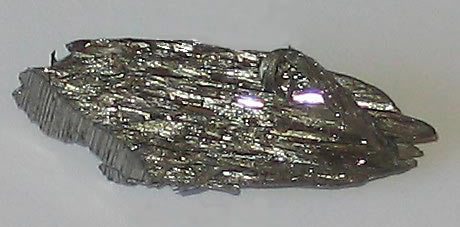 On Sunday 29th August, 2010 Ambrose Evans-Pritchard, International Business Editor of the Sunday Telegraph wrote an article suggested that Thorium reactors were the answer to this country’s energy problem.
On Sunday 29th August, 2010 Ambrose Evans-Pritchard, International Business Editor of the Sunday Telegraph wrote an article suggested that Thorium reactors were the answer to this country’s energy problem.
The British Gazette is of the firm opinion that the best method of generating the electricity the country needs and at the lowest price is to construct a new generation of very large coal fired power stations – without any nonsensical notions of trying to pump the CO2 produced under the North Sea! The coal for such stations should of course be provided from the British coalfields – which still have plenty of coal left. All of this will provide much employment for British workers – just at a time when it is needed. Notwithstanding the British Gazette’s preference for conventional, tried and tested coal technology, the British Gazette agrees that Thorium reactor technology SHOULD be developed.
This is a highly technical subject and this is not a technical article. Basically, it seems the “best bet” in terms of reactor design, is something called the Liquid Fluoride Thorium Reactor or LFTR. The advocates of Thorium reactors have some notable proponents including Carlo Rubbia at CERN (European Organization for Nuclear Research) and Kirk Sorensen, a former NASA rocket engineer and now chief nuclear technologist at Teledyne Brown Engineering.
A particular advantage of Thorium is its availability. It is in plentiful supply – unlike uranium. Furthermore in the U.K. there is an area where Thorium is abundant: Cornwall. It seems that there is enough Thorium in Cornwall to power this country solely on Thorium for centuries. Another advantage is that the Thorium reactor can actually destroy highly fissile material and thus reduce the need for comprehensive recycling and safe storage. The British Gazette is therefore of the opinion that what passes for a government in this United Kingdom should – present economic difficulties notwithstanding – finance the development of this technology. We do not doubt that it will be expensive but it would be to the very great advantage to this country were we to become the leaders in this field. There are many countries who are not as blessed with plentiful coal reserves as we are – France for instance – and these could well be customers for Thorium technology.
Speaking the Truth unto the Nation

Although I agree entirely with your article and its commonsense proposals regarding re-opening the coal industry and developing Thorium reactors, surely the fact that it would make good sense, rules it out?
None of us voted for the EU, nor for this Coalition Government, which as pre-election pledges are shed almost daily, looks more like a Con-olition.
These spineless politicians allow the EU to dictate daily policy and it is killing people. The EU with its insane policy over CO2 emissions, which despite £30billion worth of research, cannot provide a solitary piece of independent scientific evidence as prove of either anthropogenic global warming, or the greenhouse gas theory.
Food prices are soaring because wheat growing has been abandoned as farmers grow rape-seed, which the EU dictates must have its ethanol extracted to add to diesel.
The fools, Miliband and Chris Hulme are determined to bury any emissions whatsoever and waste £1billions on wind farms, the same policy that has bankrupted Holland and Spain.
Until someone has the guts to either charge, Al Gore, James Hanson, Phil Jones, and the UN with criminal fraud. or to unilaterally abandon the Global Warming Con-trick, the economy of Britain, is doomed to fail.
I think making a reactor out of something that is as abundent as Thorium would be great. It would also solve the problem everyone has with power, coal was too polluting. We just have to find enough of it and a good source of it so we can make it cheaper to get a reactor.
It’s mad to think that the cold war and the nuclear weapons race was the only reason for abandoning this technology many years ago.
The governments of the time abandoned what is a comparatively safe and abundant technology in favour of less safe technology.
Thankfully the idea is being revisited.
Our Technology and Vision
Flibe Energy is developing liquid-fluoride thorium reactor (LFTR) technology to access the energies of the element thorium, Earth’s most abundant energy-dense natural resource. Fission of one atom of nuclear fuel releases over one-million-times more energy than burning of any hydrocarbon or other fuel molecule. With LFTR technology, 6,600 tons of thorium could provide the energy equivalent of the annual global consumption of 5 billion tons of coal, 31 billion barrels of oil, 3 trillion cubic meters of natural gas, and 65,000 tons of uranium.
The key to efficient, safe and sustainable use of thorium is liquid fuel, particularly, including a combination of lithium fluoride (LiF) and beryllium fluoride (BeF2) salts often called “F-Li-Be.” Liquid FLiBe is ideal for nuclear reactor operation and chemical processing as it is unaffected by neutrons or radiation and is chemically stable. FLiBe salts have tremendous heat capacity with over 1000 degrees of liquid range to transfer large amounts of thermal energy at low pressures, enabling more efficient electricity generation with a more-compact and safer form of nuclear reactor.
LFTR technology is scalable from small 10-50 megawatt reactors that could be used in remote locations up to utility-scale 250 megawatt reactors that could be arrayed for multi-gigawatt installations. With LFTR, the thorium fuel cycle can generate significantly less mining waste and many orders of magnitude less long-term byproduct waste than conventional solid-uranium-fueled energy generation.
LFTR is based on demonstrated technologies with sound operational fundamentals proven by 20,000 hours of molten salt reactor operation. LFTR operates at low pressure—offering greater safety, and at high temperature—offering greater efficiency, with greatly reduced environmental impact relative to conventional reactors.